Have foreign firms been unfairly targeted?
Editor's Note:
The market economy is by its very nature founded upon the rule of law, the sound understanding of which has China's policymakers ramping up efforts to prod all market participants to play by the rules. Foreign investors, just like local peers, are urged to play their part in China's push for the advancement of a law-based economy. Addressing concerns over whether foreign participants have been treated equally and fairly amid a storm of actions in recent years aimed at preventing unfair anti-competitive business activities, the Global Times hosted the first Multinational Companies Investment Forum. Held in Beijing on Saturday, the forum invited some key government officials and industry experts, serving as a platform for them to convey their thoughts on how much progress the country has made in forging a level playground for economic players of varying ownerships.
Long Yongtu, chairman of the Center for China and Globalization, a top think tank, and former vice minister of the Ministry of Foreign Trade and Economic Cooperation
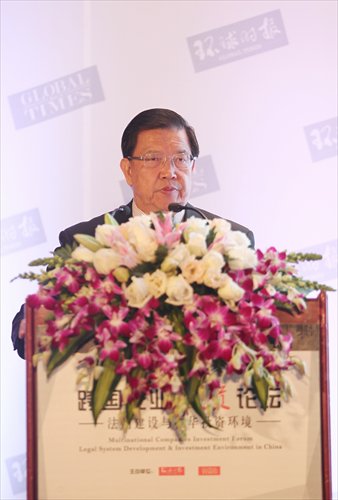
Regardless of all the difficulties, the Chinese government has been determined to make the rule of law a cornerstone of China's overall commercial environment. Considerable efforts have been directed toward improving China's business and economic environment following the 18th National Congress of the Communist Party of China [held in November 2012], honoring a number of promises made by the country since its accession into the WTO.
[Talking about the treatment of foreign investment in China,] foreign investors have actually for years been offered favorable treatment, especially in tax treatment. Foreign companies operating in China should adapt to the new norm of playing by the rules.
Worries that China might change its reform and opening-up policy and doesn't need foreign investment are groundless, as foreign capital is expected to continue as a significant source of investment to drive the economy's growth and innovation.
China will never politicize the issue of foreign investment and ride the nationalist wave to take any revenge which would only create a vicious circle.
Xu Kunlin, head of Department of Price and director of Price Supervision and Inspection and Anti-Monopoly Bureau at the National Development and Reform Commission (NDRC)
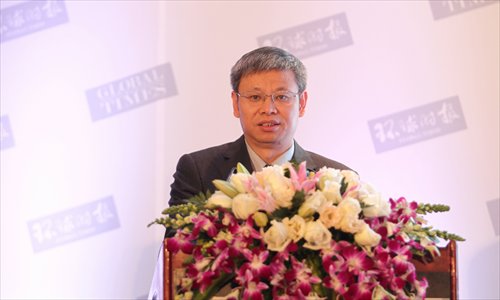
It has been more than six years since the Anti-Monopoly Law entered into force on August 1, 2008. In the initial years, we had been mostly preparing for the law's enforcement, but in recent years a flurry of investigations have been launched.
The primary goal for strengthening law enforcement in battling against monopoly activities is to maintain fair competition and create a sound investment environment.
Up until now, the NDRC and anti-monopoly law enforcement agencies at the provincial level across the country have opened price-fixing probes and made due punishment decisions involving 339 businesses and organizations. Between 2008 and 2012, 131 businesses and organizations were investigated, with only one case involving six overseas enterprises which came from South Korea and the island of Taiwan.
From 2013 to the present, the number of businesses and organizations that have been involved in price-fixing investigations has reached 208, among which there are 180 industry associations and Chinese-invested enterprises, one administrative agency, and 27 overseas enterprises.
The implementation of China's enforcement of the Anti-Monopoly Law proves that all market participants have been treated equally and there is no such thing as selective enforcement.
Ren Airong, director of Anti-Monopoly and Anti-Unfair Competition Enforcement Bureau at the State Administration for Industry and Commerce (SAIC)
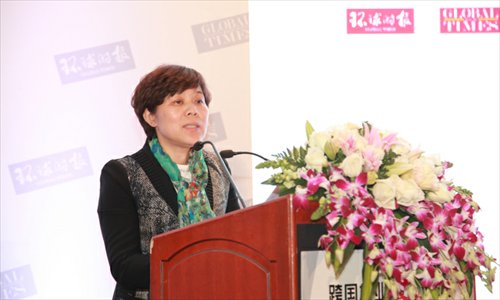
Over the past six years since the Anti-Monopoly Law went into effect, industry and commerce administration authorities have opened probes into 43 anti-monopoly cases covering the areas that include public service, construction materials, tobacco, insurance and travel. Only two cases involve foreign-invested companies, [namely Switzerland-based food packaging firm Tetra Pak International SA and US software firm Microsoft Corp which were involved in antitrust probes launched by the SAIC.]
The concerned parties in the other 41 cases are all State-owned and Chinese-invested enterprises, industry associations. As of now, 19 antitrust cases have come to an end and one case has been suspended.
In the case of law enforcement against illegitimate competition, the SAIC has toughened up the fight against various illegitimate competitive activities in both traditional and online markets. In the first three quarters, the country's industry and commerce administration authorities had issued fines totaling 580 million yuan ($94.29 million) for illegitimate competition in more than 20,000 cases.
Liu Wenbo, senior partner and vice president for the Greater China region at Roland Berger Strategy Consultants
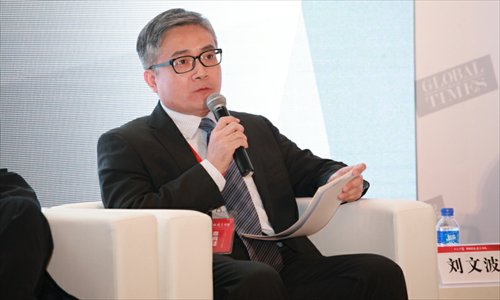
Throughout the past six years, Roland Berger has been cooperating with the European Union Chamber of Commerce in China with 1,800 members on the compilation of the annual business confidence poll.
The newly released business confidence survey for this year came across as less encouraging, with 68 percent of the respondents saying their operations in China have become increasingly difficult over the past two years and 55 percent of the companies surveyed complaining they are treated unfairly in terms of market access and regulatory barriers.
Many foreign business executives actually have a belief in the competencies of the leadership who have mapped out a fairly promisingly vision for the country's future growth, but they might have concerns over how effectively the road map will be implemented.
William S Niebur, vice president of DuPont, a global chemical and technology conglomerate

I believe that economic growth will continue and it will create a more predictable environment where strong companies can progress. We think the rule of law is very important which is something that people want to understand and begin to operate under.
Growth should be in a more sustainable way and in a more environmentally sensible way. It will increase competition and competition drives innovation. And innovation drives structural optimization. So, I really believe you are seeing modernization in the legal environment. Modernization with socialist characteristics will serve to [deal with various challenges] and serve the people.
We will need to figure out how we operate our businesses to avoid a monopolistic situation and to avoid [inappropriate competitive practices.] We will have the legitimacy in the new modern environment with the socialist characteristics. If we understand the value and work with value there will be confidence.
Huang Yong, professor in School of Law at the University of International Business and Economics
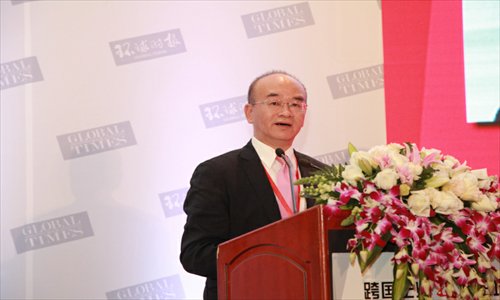
Deepening reforms and advancing the rule of law are conjoined twins who cannot be separated from each other. With the Fourth Plenary Session of the 18th Communist Party of China Central Committee [held in October 2014] which for the first time set the rule of law as a Party plenum's central theme, the deepening of reform that directs the economy toward being market-based will be guaranteed.
China needs to open up further with both technical rules and legal rules conforming with global standards and therefore staying in line with the principles of a market economy.